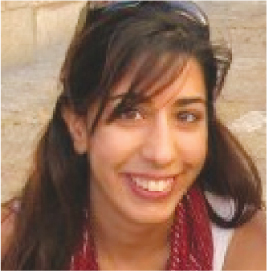
Content for class "past" Goes Here
Shlicha Shmooz
Food for thought - Can we critique and love Israel?

108 years ago “Altneuland†by Theodore Herzl was published and immediately translated into over six different languages to distribute to the Jewish world.
In this book Herzl describes the utopian Jewish country he had envisioned, a country where the new Jewish society came to life; a place with advance medicine and technology, large Jewish immigration, a society of intellectuals and a growing economy. The Arabs have equal rights, as well as women (we must remember, at that time women didn’t have the right to vote in any European country) and a sense of solidarity characterises the nation. Religion plays a big and respectful role in the society, but separate from the state by liberal parties and policy.
The past few weeks we keep hearing upsetting news coming from Israel: xenophobic protests against refugees from Sudan and Eritrea, in south Tel Aviv lead by politicians; the government drags her feet to follow the Supreme Court verdict on vacating five houses in a settlement which have been built on stolen Palestinian land, and the question of recruiting Haredi community to the IDF is raised again.
A lot of Jewish communities around the world see this kind of news and turn around confused. How can we accept these defiant acts that we wouldn’t tolerant in our country?
Most of the time, Israel is exactly what Herzl dreamed of: Israel is one of countries with the highest number of academics per capita, has one of the best public health systems, it is a democratic state with political freedom for gays and women and minority rights are been protected by an even-handed legal system. But when reality and utopia meet, all we are left with is disappointment.
We should expect more from Israel than we expect other countries. Israel was built on a dream and a vision which is shared by all Jews around the world. 64 years later, one has to re-examine the utopian expectation.
Emigration issues are being dealt with in most of the western world these days. Xenophobia, unfortunately, is a world-wide problem as well as in Israel. Problems of irresponsible government and the question of sharing the civil burdens across countries and cultures are problems South Africa, itself, is dealing with.
Nevertheless, Israel should and must rise above other countries morally, and because of that we must critique and question Israel’s action to meet those expectations. When we do that, it has to come from love and sharing the Zionist dream, remembering Israel is a country that will stand by all Jewish communities, supporting and protecting them. Israel was born to be a safe place for the Jewish people for self-determination in their historic land. This message should be passed to the next generation, to love and connect to Israel in a variety of ways. When we have this foundation, we can stand up and demand Israel to be the utopia we dreamed of. In a way, this is how I see my shlichut here, and in the last few months I have left in Durban, I’m trying to leave this message with the Durban youth and the community.


